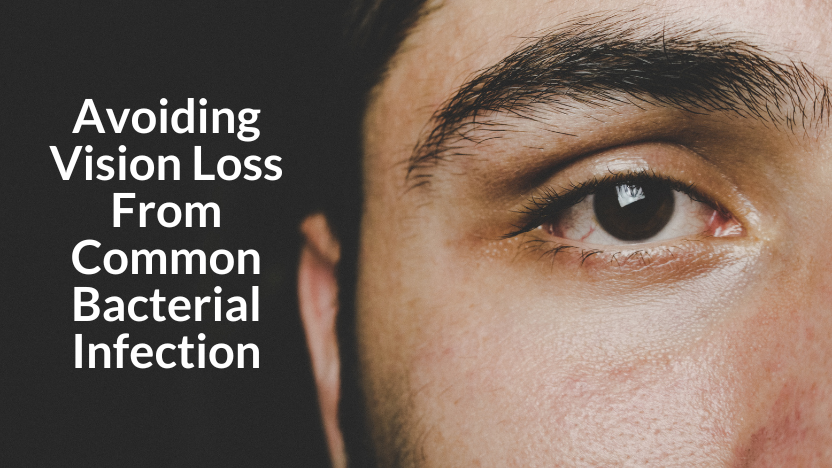How to Avoid Vision Loss Due to a Common Bacterial Infection
Posted by EyePromise on Jul 11th 2024
One of the common causes of vision loss is triggered by a bacterial infection. This issue, known as trachoma, is an infectious eye health issue that can be completely avoided, but it can cause long-term trauma that can lead to blindness. While global numbers are declining, it persists, impacting thousands of people across the globe. However, it can be easily avoided, and here’s how.
What Is Trachoma?
First and foremost, let’s discuss what trachoma is. It’s an eye health issue that’s triggered by certain strains of Chlamydia trachomatis bacterium. It spreads through:
- Touching secretions from the eyes or nose
- Contaminated items like clothing
- Specific species of flies (those that like hovering around the human eye)
Trachoma infects the soft, thin, pink layer of the eyelids known as conjunctiva. This issue tends to be more common in rural areas and spreads easily within households. Trachoma is more common in children, although vision loss occurs later in life due to repeated infection. Repeated infection leads to scarring, which turns the eyelashes in. Over time, the lashes scratch the cornea, leading to clouding and eventually vision loss.
What Does Trachoma Feel Like?

Trachoma is a very painful eye health issue. Along with pain, you may experience blurry vision, red, swollen eyes, pain when blinking and sleeping, and vision loss (temporary and permanent).
What Is Trachoma’s Impact on Daily Life?
As mentioned, global trachoma numbers are declining, but it’s still affecting over 400,000 people throughout the world. Along with daily pain (which is enough in our opinion), this means that nearly half a million people are:
- More prone to accidents
- Dealing with issues at work
- Experiencing difficulties navigating daily life
- Facing social stigma
How Do I Avoid/Manage Trachoma?
There are several avenues available for managing trachoma, but options vary based on its stages. Below are the recommendations for avoiding or managing trachoma.
Before Infection

- Access to clean water and sanitation
- Better waste management
- Improved hygiene
- Wash hands often; always clean hands before touching the eyes
- Keep your eyelids clean using a lid scrub or a mix of warm water and a bit of non-irritating shampoo
- Don’t share makeup/eye drops/contacts/towels
- Be gentle when touching/addressing the eyes
- Insecticides to specifically keep flies away
- Routine eye exams (catch issues before they become serious)
After Infection
- Access to antibiotics
Later Stages
- Access to surgical intervention
Advancements
There have been some technological advancements in terms of managing trachoma, including:
- Rapid testing to identify trachoma
- Antibody testing to learn about immunity
- New surgical techniques
- Potential vaccines: current vaccinations provide short-term protection against trachoma, demonstrating the potential for effective immunization
What Hurdles Arise When It Comes to Lowering Global Trachoma Statistics?
With all the advancements in identifying and caring for trachoma, why aren’t global rates decreasing more? Disenfranchised and lower income areas are at higher risk, and they typically have limited or no access to the selection of care provided for trachoma. This discrepancy in care is partially responsible for the remaining trachoma cases.
How Can EyePromise® Help?
With the help of industry experts, EyePromise developed a clinically validated eye vitamin designed to soothe the eye from the inside out. With ultra-purified, concentrated Omega-3s and 7 additional refreshing ingredients, EZ Tears™ is crafted with comfort in mind. Its formulation works to balance the tear film and bring balance to the surface of the eye.
While it’s not intended for those with trachoma, it may provide mild relief for the discomfort experienced with the eye health concern as well as provide a restored foundation to help keep your eyes healthy. Learn more about EyePromise EZ Tears.
Trachoma is a serious eye health concern, but it doesn’t need to be a common one. By following these recommendations and working together to increase access to care, we can help even further reduce trachoma numbers worldwide.


